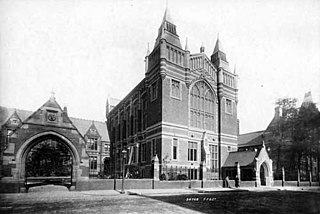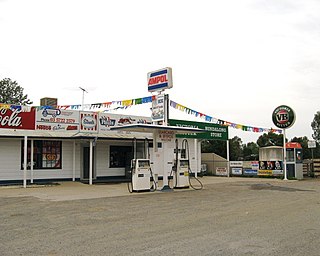Facts
Regal owned a cinema in Hastings, Sussex. They took out leases on two more, through a new subsidiary, to make the whole lot an attractive sale package. However, the landlord first wanted them to give personal guarantees. They did not want to do that. Instead the landlord said they could up share capital to £5,000. Regal itself put in £2,000, but could not afford more (though it could have got a loan). Four directors each put in £500, the Chairman, Mr Gulliver, got outside subscribers to put in £500 and the board asked the company solicitor, Mr Garten, to put in the last £500. They sold the business and made a profit of nearly £3 per share. But then the beneficiaries brought an action against the directors, saying that this profit was in breach of their fiduciary duty to the company. They had not fully obtained the consent from the shareholders.
Judgment
The House of Lords, reversing the High Court and the Court of Appeal, held that the defendants had made their profits “by reason of the fact that they were directors of Regal and in the course of the execution of that office”. They therefore had to account for their profits to the company. The governing principle was succinctly stated by Lord Russell of Killowen:
“The rule of equity which insists on those who by use of a fiduciary position make a profit, being liable to account for that profit, in no way depends on fraud, or absence of bona fides ; or upon questions or considerations as whether the property would or should otherwise have gone to the plaintiff, or whether he took a risk or acted as he did for the benefit of the plaintiff, or whether the plaintiff has in fact been damaged or benefited by his action. The liability arises from the mere fact of a profit having, in the stated circumstances, been made.”
Lord Wright said (at 157),
"The Court of Appeal held that, in the absence of any dishonest intention, or negligence, or breach of a specific duty to acquire the shares for the appellant company, the respondents as directors were entitled to buy the shares themselves. Once, it was said, they came to a bona fide decision that the appellant company could not provide the money to take up the shares, their obligation to refrain from acquiring those shares for themselves came to an end. With the greatest respect, I feel bound to regard such a conclusion as dead in the teeth of the wise and salutary rule so stringently enforced in the authorities. It is suggested that it would have been mere quixotic folly for the four respondents to let such an occasion pass when the appellant company could not avail itself of it; Lord King, L.C., faced that very position when he accepted that the person in the fiduciary position might be the only person in the world who could not avail himself of the opportunity."

A fiduciary is a person who holds a legal or ethical relationship of trust with one or more other parties. Typically, a fiduciary prudently takes care of money or other assets for another person. One party, for example, a corporate trust company or the trust department of a bank, acts in a fiduciary capacity to another party, who, for example, has entrusted funds to the fiduciary for safekeeping or investment. Likewise, financial advisers, financial planners, and asset managers, including managers of pension plans, endowments, and other tax-exempt assets, are considered fiduciaries under applicable statutes and laws. In a fiduciary relationship, one person, in a position of vulnerability, justifiably vests confidence, good faith, reliance, and trust in another whose aid, advice, or protection is sought in some matter. In such a relation, good conscience requires the fiduciary to act at all times for the sole benefit and interest of the one who trusts.
A fiduciary is someone who has undertaken to act for and on behalf of another in a particular matter in circumstances which give rise to a relationship of trust and confidence.
The business judgment rule is a case-law-derived doctrine in corporations law that courts defer to the business judgment of corporate executives. It is rooted in the principle that the "directors of a corporation ... are clothed with [the] presumption, which the law accords to them, of being [motivated] in their conduct by a bona fides regard for the interests of the corporation whose affairs the stockholders have committed to their charge." The rule exists in some form in most common law countries, including the United States, Canada, England and Wales, and Australia.

Canadian Aero Service Ltd v O'Malley, [1974] SCR 592, is a leading civil case decided by the Supreme Court of Canada on corporate director and officer liability.

Peso Silver Mines Ltd v Cropper, [1966] S.C.R. 673, is a leading Canadian case decided by the Supreme Court of Canada on the fiduciary duty of corporate directors, the boundaries of conflict of interest, and the type of damages that may be obtained in cases of wrongful dismissal.

Keech v Sandford[1726] EWHC J76 is a foundational case, deriving from English trusts law, on the fiduciary duty of loyalty. It concerns the law of trusts and has affected much of the thinking on directors' duties in company law. It holds that a trustee owes a strict duty of loyalty so that there can never be a possibility of any conflict of interest.

Industrial Development Consultants Ltd v Cooley [1972] 1 WLR 443 is a UK company law case on the corporate opportunities doctrine, and the duty of loyalty from the law of trusts.

Boardman v Phipps [1966] UKHL 2 is a landmark English trusts law case concerning the duty of loyalty and the duty to avoid conflicts of interest.
Directors' duties are a series of statutory, common law and equitable obligations owed primarily by members of the board of directors to the corporation that employs them. It is a central part of corporate law and corporate governance. Directors' duties are analogous to duties owed by trustees to beneficiaries, and by agents to principals.

Attorney General v Blake[2000] UKHL 45, [2001] 1 AC 268 is a leading English contract law case on damages for breach of contract. It established that in some circumstances, where ordinary remedies are inadequate, restitutionary damages may be awarded.
The corporate opportunity doctrine is the legal principle providing that directors, officers, and controlling shareholders of a corporation must not take for themselves any business opportunity that could benefit the corporation. The corporate opportunity doctrine is one application of the fiduciary duty of loyalty.

Bray v Ford [1896] AC 44 is an English defamation law case, which also concerns some principles of conflict of interest relevant for trusts and company law.

Southern Foundries (1926) Ltd v Shirlaw [1940] AC 701 is an important English contract law and company law case. In the field of contracts it is well known for MacKinnon LJ's decision in the Court of Appeal, where he put forth the "officious bystander" formulation for determining what terms should be implied into agreements by the courts. In the field of company law, it is known primarily to stand for the principle that damages may be sought for breach of contract by a director even though a contract may de facto constrain the exercise of powers to sack people found in the company's constitution.

Bhullar v Bhullar[2003] EWCA Civ 424, 2 BCLC 241 is a leading UK company law case on the principle that directors must avoid any possibility of a conflict of interest, particular relating to corporate opportunities. It was not decided under, but is relevant to, section 175 of the Companies Act 2006.

Howard Smith Ltd v Ampol Petroleum Ltd[1974] UKPC 3 is a leading company law case, concerning the duty of directors to act only for "proper purposes". This duty has been codified into the Companies Act 2006 section 171, and arises particularly in cases involving takeover bids.

The Attorney General for Hong Kong v Reid (UKPC)[1993] UKPC 2 was a New Zealand-originated trust law case heard and decided by the Judicial Committee of the Privy Council, where it was held that bribe money accepted by a person in a position of trust, can be traced into any property bought and is held on constructive trust for the beneficiary.

Sinclair Investments (UK) Ltd v Versailles Trade Finance Ltd[2011] EWCA Civ 347 is an English trusts law case, concerning constructive trusts. Sinclair was partially overruled in July 2014 by the UK Supreme Court in FHR European Ventures LLP v Cedar Capital Partners LLC.

El Ajou v Dollar Land Holdings plc[1993] EWCA Civ 4 is an English trusts law case concerning tracing and receipt of property in breach of trust.
Soffiantini v Mould is an important case in South African law. An appeal from a decision of Back AJ, it was heard in the Eastern Districts Local Division by Price JP, Jennett J and Wynne J on 30 July 1956. Judgment was handed down on 14 August 1956. The appellant's attorneys were Espin & Espin. The respondent's attorney was LB Green. The case concerned the relationship between landlord and tenant, and confirmed that, under the common law, a landlord is not entitled to enter leased premises without consent. The trespassing landlord can be interdicted.

AI Enterprises Ltd v Bram Enterprises Ltd, 2014 SCC 12 was a unanimous decision of the Supreme Court of Canada that standardized Canadian jurisprudence with respect to the economic tort of unlawful means.

FHR European Ventures LLP v Cedar Capital Partners LLC[2014] UKSC 45 is a landmark decision of the United Kingdom Supreme Court which holds that a bribe or secret commission accepted by an agent is held on trust for his principal. In so ruling, the Court partially overruled Sinclair Investments (UK) Ltd v Versailles Trade Finance Ltd in favour of The Attorney General for Hong Kong v Reid (UKPC), a ruling from the Judicial Committee of the Privy Council on appeal from New Zealand.













